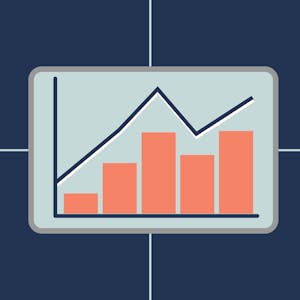Bayesian Statistics: Time Series Analysis
About this Course
This course for practicing and aspiring data scientists and statisticians. It is the fourth of a four-course sequence introducing the fundamentals of Bayesian statistics. It builds on the course Bayesian Statistics: From Concept to Data Analysis, Techniques and Models, and Mixture models. Time series analysis is concerned with modeling the dependency among elements of a sequence of temporally related variables. To succeed in this course, you should be familiar with calculus-based probability, the principles of maximum likelihood estimation, and Bayesian inference. You will learn how to build models that can describe temporal dependencies and how to perform Bayesian inference and forecasting for the models. You will apply what you\'ve learned with the open-source, freely available software R with sample databases. Your instructor Raquel Prado will take you from basic concepts for modeling temporally dependent data to implementation of specific classes of modelsCreated by: University of California, Santa Cruz

Related Online Courses
In this course, you will gain an understanding of the theory underlying optimal portfolio construction, the different ways portfolios are actually built in practice and how to measure and manage... more
This course focuses on applications of optimization methods in portfolio construction and risk management. The first module discusses portfolio construction via Mean-Variance Analysis and Capital... more
This is a self-paced lab that takes place in the Google Cloud console. In this lab, you\'ll use AppSheet to create a no-code app for Google Chat.Created by: Google Cloud more
The course \"YARN MapReduce Architecture and Advanced Programming\" provides an in-depth understanding of YARN and MapReduce architectures, focusing on their components and capabilities. Students... more
As part of this guided project, you shall build your first Machine Learning Pipeline using DataIku tool without writing a single line of code. You shall build a prediction model which inputs COVID... more








